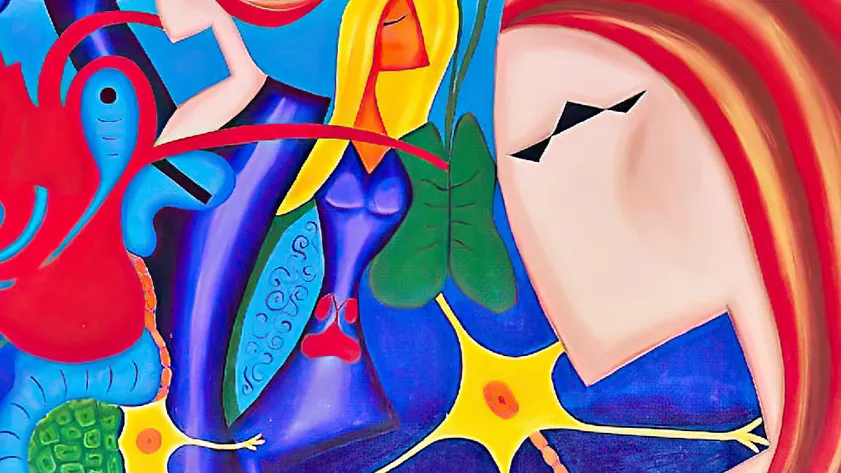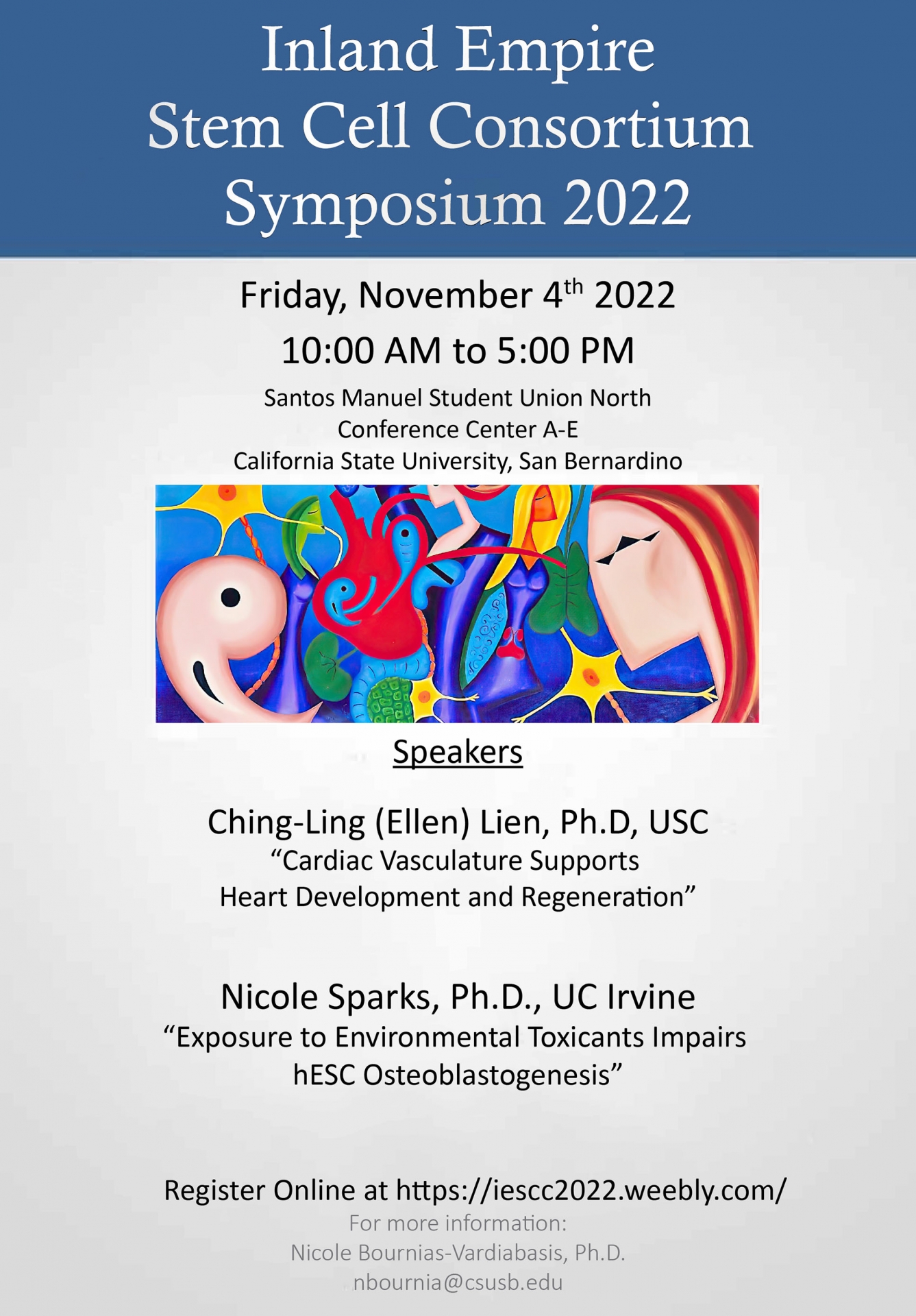Joe Gutierrez | Office of Strategic Communication | (909) 537-3007 | joeg@csusb.edu

Cal State San Bernardino will host the annual Stem Cell Scholars Symposium, which seeks to create an environment of interaction between stem cell labs, offer training opportunities for students and offer a forum to provide more knowledge in the area of stem cell biology to the community.
The symposium will be held on Friday, Nov. 4, at the Cal State San Bernardino Santos Manuel Student Union North Conference Center A-E.
This annual event is put together by the Inland Empire Stem Cell Consortium (IESCC). The IESCC is comprised of four institutions: CSUSB; University of California, Riverside; Loma Linda University and Western University of Health Sciences.
“For the past 10 years, these four academic institutions have formed a network of support for stem cell research and students,” said Nicole Bournias-Vardiabasis, a CSUSB professor of biology and director of the California Institute for Regenerative Medicine Bridges Program. “The symposium gives an opportunity both for the researchers to present their work and for the students to attend and learn more about stem cell biology.”
Opening remarks begin at 10 a.m., followed by the first keynote speaker. Oral presentations begin at 11 a.m. with a lunch and poster session at 12:15 p.m., followed by afternoon presentations at 2 p.m.
Simultaneously, the second keynote speaker presents at 2 p.m. with oral presentations at 3 p.m., followed by the presentation of student awards and closing remarks at 4:45 p.m.
The first keynote speaker is Dr. Ching-Ling (Ellen) Lien.
Lien is an associate professor in the Department of Surgery, Biochemistry and Molecular Medicine at the University of Southern California. Her laboratory is part of the Developmental Biology and Regenerative Medicine Program of the Saban Research Institute, Children’s Hospital Los Angeles.
Lien’s research is to understand the molecular mechanisms of heart regeneration in animals such as zebrafish. With this knowledge from studying zebrafish heart regeneration, she plans to design therapeutic strategies for adult and pediatric human heart diseases.
The second keynote speaker is Nicole Sparks, an assistant professor at the University of California, Irvine in the Department of Environmental and Occupational Health research.
Sparks received her master’s degree at CSUSB and went on to complete her doctoral degree in environmental toxicology at the University of California, Riverside.
“An interesting part of this symposium is it allows students to see what they can do with their degrees, and hear from researchers that followed the same path as many of our students,” said Bournias-Vardiabasis.
Sparks’ research focuses on stem cell fate changes due to toxicant exposure that associates with skeletal birth defects. With her research, she has potentially uncovered an underlying connection between maternal smoking and skeletal birth defects.
“I enjoy the opportunity of getting to listen to other researchers discuss their work, but I really enjoy the opportunity this symposium offers the students,” said Bournias-Vardiabasis. “This gives our students the chance to attend a symposium, and coming out of the pandemic, it’s a great opportunity to get out and network for them.”
For stem cell students interested in attending the event, visit the IESCC page to register.
